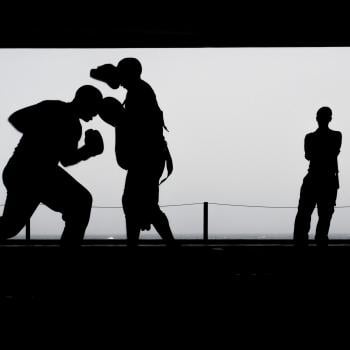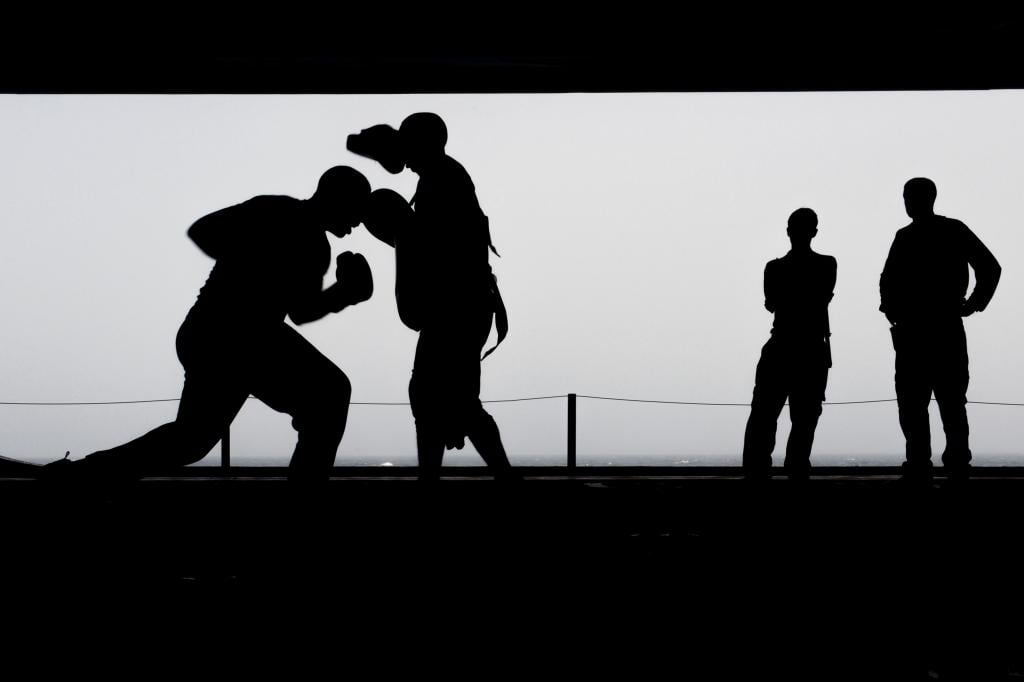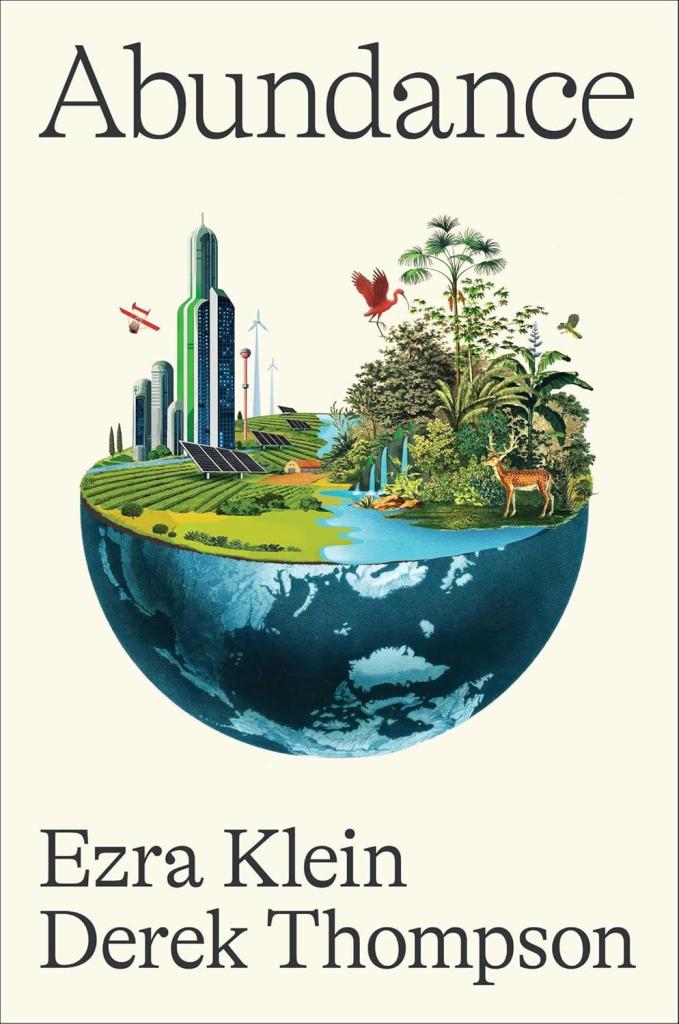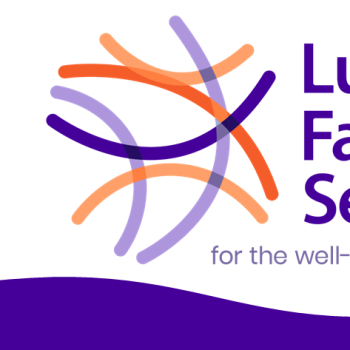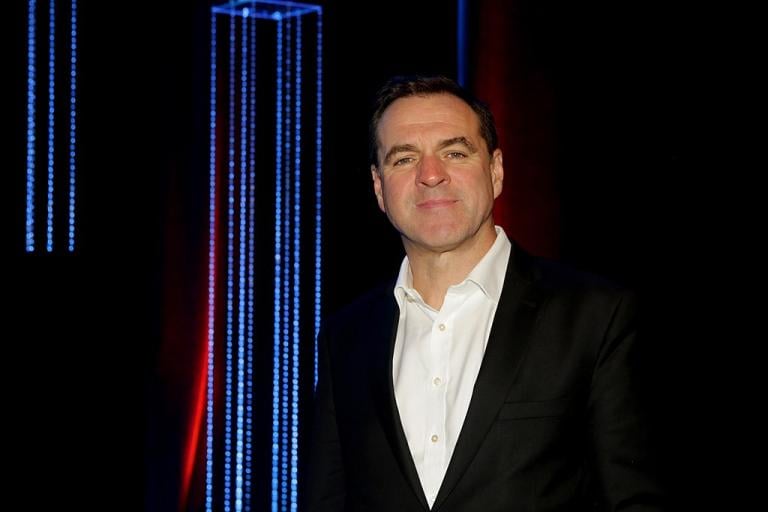Yesterday we discussed Alasdaire MacIntyre’s point that every community needs three things: a creed, a story, and a practice. We applied that to Luther’s three Estates of the church, the family, and the state.
But, to a greater or lesser degree, we have lost our sense of community. Today we’ll use MacIntyre’s model to consider what has gone wrong–why people often feel that they don’t belong–in each of these estates. And how we might bring back that sense of belonging.
Lacking community is hard on us, leading to the loneliness and isolation that plague so many Americans today. Lacking community also contributes to the loss of something that may seem its opposite, namely, identity. We usually think of identity as the qualities of a particular, distinct individual. While this is true, ironically, we find our identity in terms of the communities we belong to.
In general, I would say that we have lost the sense of community in the church, family, and state because it’s hard to have a common creed and a common story any more. But because we need to feel that we belong to a community and that we have a specific identity, many Americans are constructing different kinds of affinity groups to take the place of the traditional ones.
Thus, we speak of the “LGBTQ community.” It has a creed: that sexual attraction to the same sex is normal, good, and just as valid as heterosexuality. It has a story: that homosexuality has long been oppressed and suppressed, but that now can be embraced with open displays of “Pride.” That overall story is complemented by common personal stories of mistreatment leading to the conversion point of “coming out of the closet.” The LGBTQ community also has practices that create a sense of unity: not just sexual practices but the flying of the rainbow flag, performative displays, and Pride Parades.
The “Trans community” has a creed that asserts that one’s “sex assigned at birth” is not necessarily one’s true gender. The story is the common testimony of the pain of having to live in the wrong body until realizing one’s true gender and getting “gender affirming” treatments. The practices include a sometimes exaggerated imitation of the appearance and mannerisms of the opposite sex. And often a defensive militancy against anyone who questions their new gender.
Back to the Estates. . . .
The Church
Churches are often hailed even by secularists as good places to find community, and so they can be. But many churches today think community just means being friendly and welcoming. That can be helpful in making an outsider feel a sense of belonging, but there is more to community than that.
Churches used to feature a specific process of initiation into the community: Baptism, Catechesis, and Confirmation. In catechesis, whether of children or adults, the prospective member is instructed in the Creeds and the Story of church community.
Lutherans, Catholics, Orthodox, Anglicans, and Presbyterians still have adult instruction classes (a.k.a., membership classes), which teach about the church and its beliefs. These can last from a few weeks to six months. After that, new members go through a formal rite of confirmation.
Most Protestants, though, join a congregation by just coming down the aisle at the end of a service and shaking the minister’s hand. Though Baptists and some others do require a baptism by immersion, most evangelicals do not even require that. There is little or no instruction in the creed of the community, though that can be picked up in Bible classes. Non-denominational and other evangelical congregations allow for a wide range of beliefs, which weaken the community-building grounding in a common creed. Although these churches do have a common story in the form of individual conversion “testimonies.”
Many congregations from a wide range of traditions believe that minimizing requirements to membership will result in more people joining, and this may be so. But such churches often have a large turnover as attendees flit from one such congregation to another. The sense of community and “identifying” with a particular church will be stronger if everyone has a common creed and feels like part of the church’s “story” (which is what I try to make happen in my new book Embracing Your Lutheran Identity).
Practice, of course, is also very important. Intentionally including the new members in the life of the congregation–not so much by giving them jobs to do, which often happens and which can be overwhelming, but by helping them get to know other members, by inviting them to meals or other informal activities–will help them feel a sense of belonging to the community.
More broadly, churches have caused members to lose their sense of community to the point of leaving altogether for bigger reasons. Liberal theologians shot down the Creeds of mainline denominations. The Story of Catholics, Baptists, and others has become a source of disillusionment, due to scandals and sexual abuse. And changes in Practice can turn a point of unity into a point of disunity. For example, when Vatican II got rid of time-honored Catholic practices, such as not eating meat on Friday and ditching the Latin mass, many long-time Catholics were confused and drifted away.
The Family
Today’s families often lack a creed. That is to say, they have no common religious commitment. Political disagreements often split families. When children are indoctrinated at school into ideologies–about gender, the environment, homosexuality, transgenderism, etc.–that often conflicts with their parents’ beliefs, which can undermine family unity and thus community.
A family’s story can be disrupted by divorce, remarriage, new step-siblings and half-siblings, new extended families children have never known before, and other developments that are confusing and disorienting, to children especially but also to their parents.
Practices can work against a sense of family community. Though breaking bread with others is a prime relationship-builder, reportedly only 30% of families regularly eat dinner together. With our patterns of work and school, children often socialize mainly with their circle of friends (who may not share the family’s “creed”), while their parents socialize mainly with their colleagues (who also may not share the family’s “creed”). As a result, each family member may end up living in his or her own social world, with the family playing an ever-smaller role.
Looking at community in terms of MacIntyre’s template of creed, story, and practices, the family today would seem to be more problem-filled than the other estates. Since family is the most intimate and formative of our influences, no wonder we are having so much loneliness and emotional dysfunctions.
What can be done? This is complicated, because it is one thing to start a family on the right foundations and another to repair a family already broken. I invite your suggestions. Here are a few things that come to my mind. . . .
To build up “creed,” commit to the same faith and go to church together.
To build up “story,” don’t get divorced, or if you are divorced, don’t get another one. Visit your extended family often.
To build up “practices,” eat together, go on vacations together, go to sporting events together, watch TV together, spend time with each other.
Homeschooling has the advantage of raising children apart from the sometimes toxic school culture. Another good thing about homeschooling, apart from potentially better academics, is that parents necessarily spend a lot more time with their children than they would otherwise. That in itself is beneficial to a child.
What else?
The State
For (legal) immigrants to become citizens of the United States, they first must pass a citizenship exam, which covers the founding principles of the nation (the Declaration of Independence, the Bill of Rights), American history, and the elements and responsibilities of civic participation in our democratic republic. Thus, the immigrant must know the American creed, story, and practices.
Would-be citizens must also show mastery of spoken and written English. All of these requirements are meant to ensure and enable the new citizen’s assimilation into the national community. They may certainly retain their ethnic and religious communities, but at the same time they should be fully-integrated Americans.
In Europe, assimilation has been legally down-played in favor of “multi-culturalism,” which is why immigration is even more of a problem there than it is here. Even legal and long-term immigrants in Europe are often unassimilated–keeping their own language and culture, even when their practices are at odds with those of the host nation–so that they are not full members of the national community, to their harm as well as the harm of the nation. In the U.S., “illegal immigrants” present the same problems.
But even long-term, multi-generational citizens of the United States are often losing their sense of community.
The American Creed: Today many Americans on both sides of the political spectrum are rejecting “liberal democracy,” the principles of liberty, democracy, and rights set forth in our Constitution. According to the Declaration of Independence, “We hold these truths to be self-evident, that all men are created equal, that they are endowed by their Creator with certain unalienable Rights.” Such truths are not self-evident any more. Not everyone in the United States believes in equality or in rights not bestowed by the government. How could they, if they don’t believe in the Creator?
Instead, many Americans believe that government, laws, and culture itself are nothing more than the imposition of power, of one group oppressing other groups. The Declaration of Independence and the Constitution are nothing more than noble-sounding lies to cover up the predations of the privileged white men who were really in charge. If you believe that, then there is no freedom, no self-government, no rule of law. You deny the very possibility of an American community.
The American Story: Those who believe that in our schools, universities, and media have been actively discrediting American history. By claiming that slavery, not freedom, is at the heart of the American enterprise, casting down American heroes off their pedestals, both figuratively and literally, and downplaying American efforts to right the wrongs that violate the national creeds, our intellectual and cultural elite have done real harm to our national sense of community. Instead, they form citizens who are cynical, guilt-ridden, and ashamed of their country.
Of course, slavery and our treatment of native populations are part of the American story, but such evils violate our “creeds.” That many of the founders who wrote those creeds did not live up to them should not discredit the creeds, which is how the counter-stories argue. Rather, they show the objectivity of the principles, which inhere above all in the Creator. And the development of the nation is the story of those principles finally being applied to groups that were originally excluded.
The American Practices. What are they any more? As the nation fragments into ever-smaller affinity groups at war with each other, due to the lack of a common creed and a common story, our common practices also fly apart.
We still vote, but voting has become contested, on both sides. We don’t trust each other enough–for good reasons–to accept the results.
We observe national holidays, but those have become contested. Columbus Day and Thanksgiving are made to commemorate the European invasion of the natives’ continent. Independence Day reminds us of our founders’ hypocrisies. We are still glad to have a four-day weekend, but Memorial Day and Labor Day have little meaning beyond the occasion to have a cook-out. Community needs more than that.
By the way, to speak of a sense of national community or to bring up the Creator as the Declaration of Independence does, is not Christian nationalism or even American exceptionalism. It might be called the virtue of patriotism, if that word could be stripped of its negative connotations. It is simply the love of country, which citizens of all nations should feel for their homeland and for the other people who inhabit the same society.
What can restore it? I’d like to hear your ideas.
Americans, deep down, tend to be patriotic. Both conservatives and liberals used to share the same patriotic emotions. The eclipse of the woke left will help greatly. Restoring our foundational beliefs and building a consensus around them will help. So will discrediting revisionist history and re-appreciating our past.
National catastrophes–wars, the depression, the 9/11 attacks, natural disasters–have a way of creating national unity. Spare us, good Lord!
Illustration: Dark Boxing by Pixabay via StockVault, CC0


